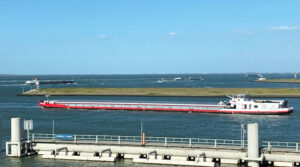We have recently seen an increase in inquiries from our principals about the time limitations for cargo claims in the Netherlands. Given the practical importance of this subject for carriers, P&I Clubs, and cargo interests, we set out below the key rules on time bars under Dutch law, with a particular focus on carriage by sea under bills of lading. For interested readers, we have also published an article on time limits for collisions under Dutch law, available here.
Time limits under Dutch law
The statutory time limit under any contract of carriage of goods by sea, including bills of lading and charter parties, is one year. The period runs from the date the goods were delivered or should have been delivered. This rule reflects the Hague-Visby regime and is applied strictly by Dutch courts.
Dutch law allows parties to agree an extension of the one-year period. Such an agreement must be made after the event giving rise to the claim, and it is only valid if concluded between the party with title to sue and the carrier. In practice, this is a common way to safeguard claims that are still under discussion as the expiry date approaches. If no extension is agreed and no legal proceedings are started in time, the claim lapses and cannot be revived.
Interrupting the time bar (Stuiting van de verjaringstermijn)
Dutch law also provides tools to interrupt the running of the limitation period. The safest option is to timely commence legal proceedings (court or arbitration) before expiry. This immediately stops the clock and preserves the claim from becoming time barred.
Another method is by means of a written notice (stuitingsbrief) in which the claimant clearly states that the legal nature of his claim, that damage has been suffered and that they maintain the right to seek payment of damages from the liable party. Such written notice is an unilateral legal act, meaning the carrier’s consent is not required. However, for certain damage claims this interruption is only temporary: proceedings must then follow within six months to maintain the effect of the notice. An acknowledgement of liability by the carrier, for example through a partial payment or express admission, also interrupts the limitation.
It is important to bear in mind the distinction between prescription (verjaring) and forfeiture (verval) periods under Dutch law. Prescription periods can generally be interrupted, but forfeiture periods cannot. A claim under a charter party is a prescription period, whilst a claim under a bill of lading is a forfeiture period. If the statutory provision is characterized as a forfeiture period, the claim simply lapses at expiry. In those cases, only a timely extension agreement or commencing proceedings before expiry can protect the claim.

Other Points to Consider
Only the right and regular bill of lading holder has title to sue under a bill of lading. The owner of the goods may, in some cases, bring a claim in tort against the carrier. However, Dutch law limits such direct tort based claims: A carrier sued in tort may invoke, in their defense, the contract concluded by the party holding them liable. In short, claimants cannot escape contractual limitations by relying on tort.
For inland navigation, different rules may apply such as the Budapest Convention on the Contract for the Carriage of Goods by Inland Waterway (CMNI) or other related Dutch/European provisions. These may set their own time bars and rules on interruption, which may not be identical to those for seagoing vessels.
As always, NNPC Correspondents remain available to assist Clubs and Members with local procedures, coordination with carriers and ensuring compliance with Dutch law. Should you have any questions or require assistance, please contact us at correspondents@nnpc-correspondents.nl.

